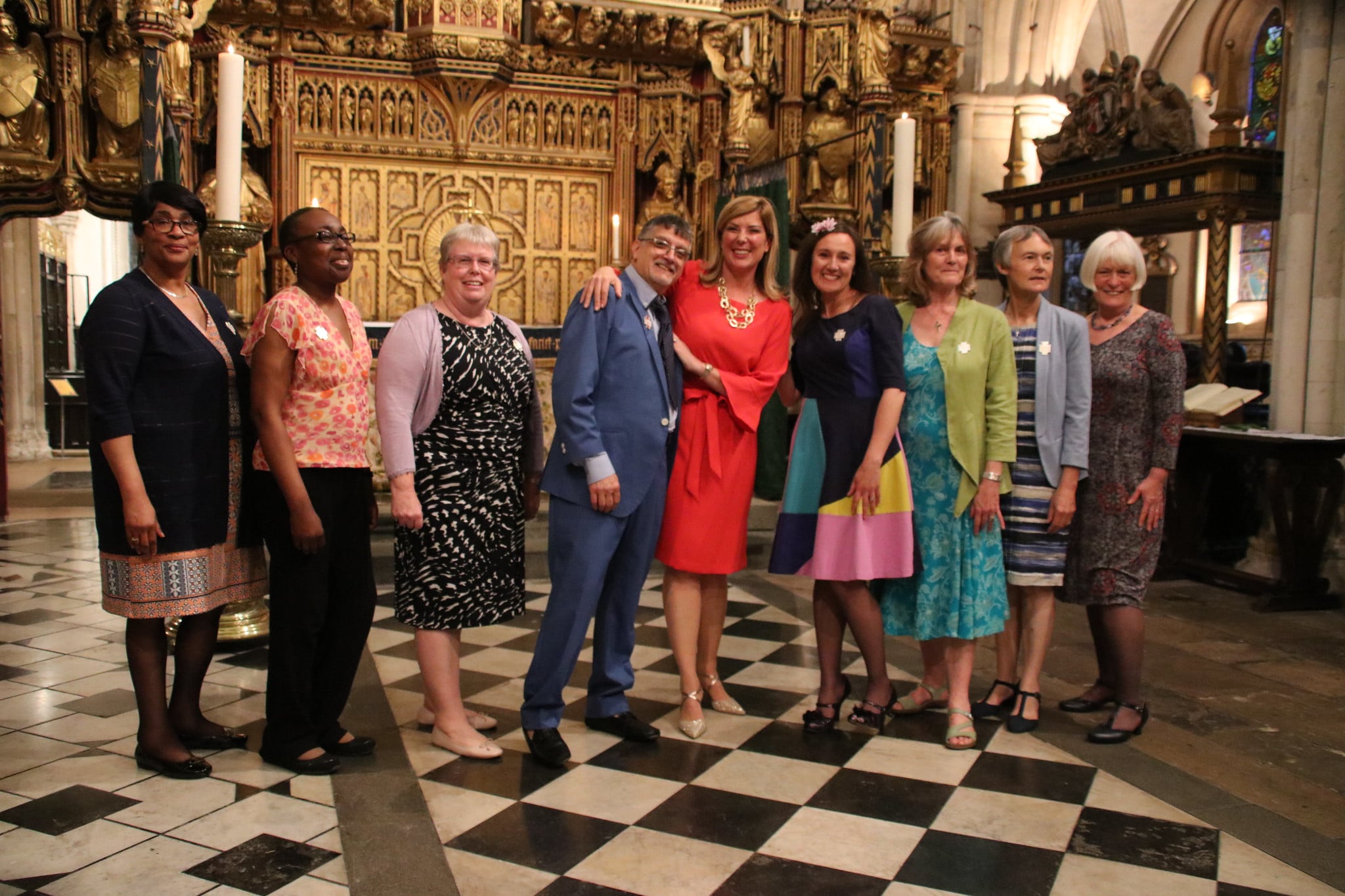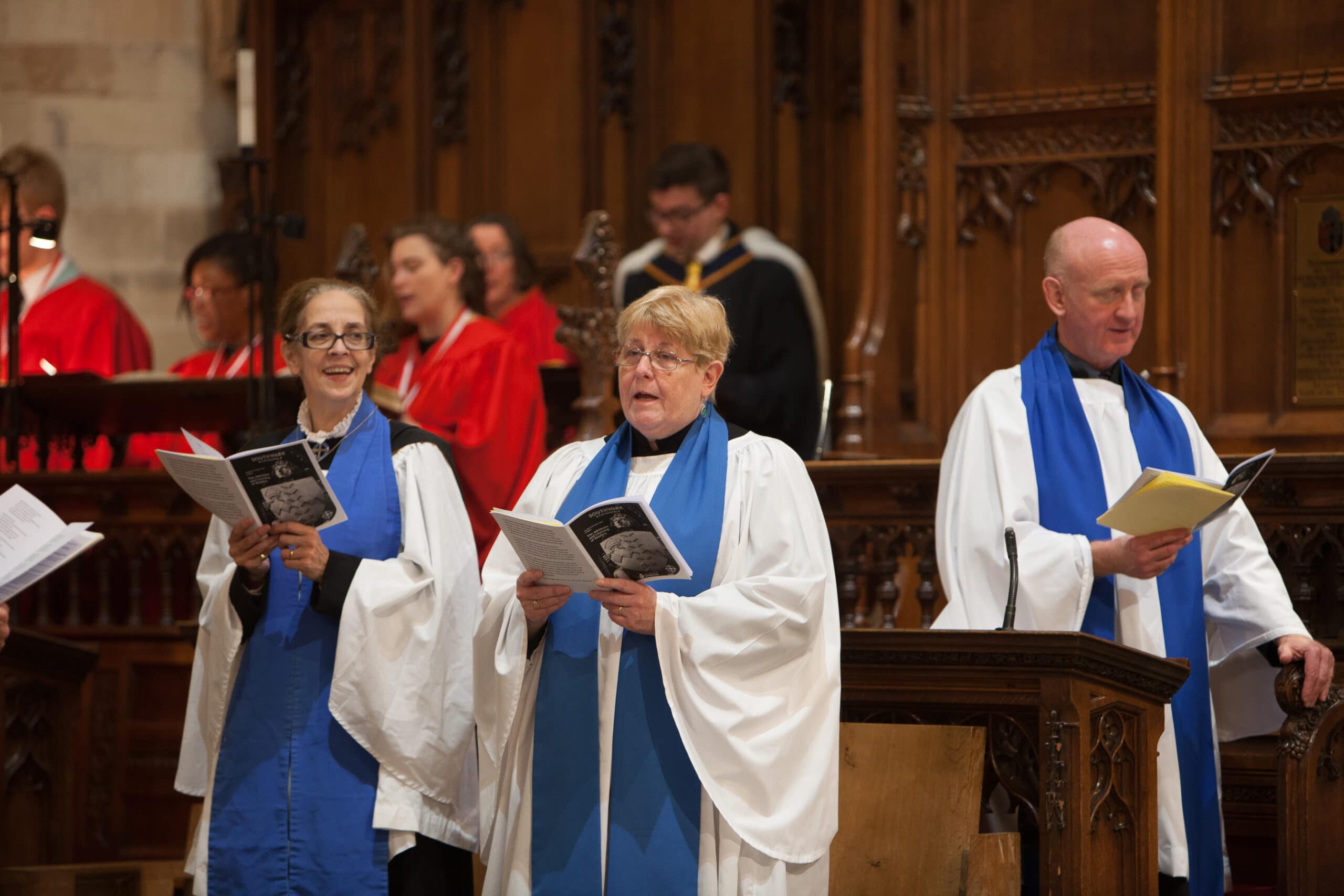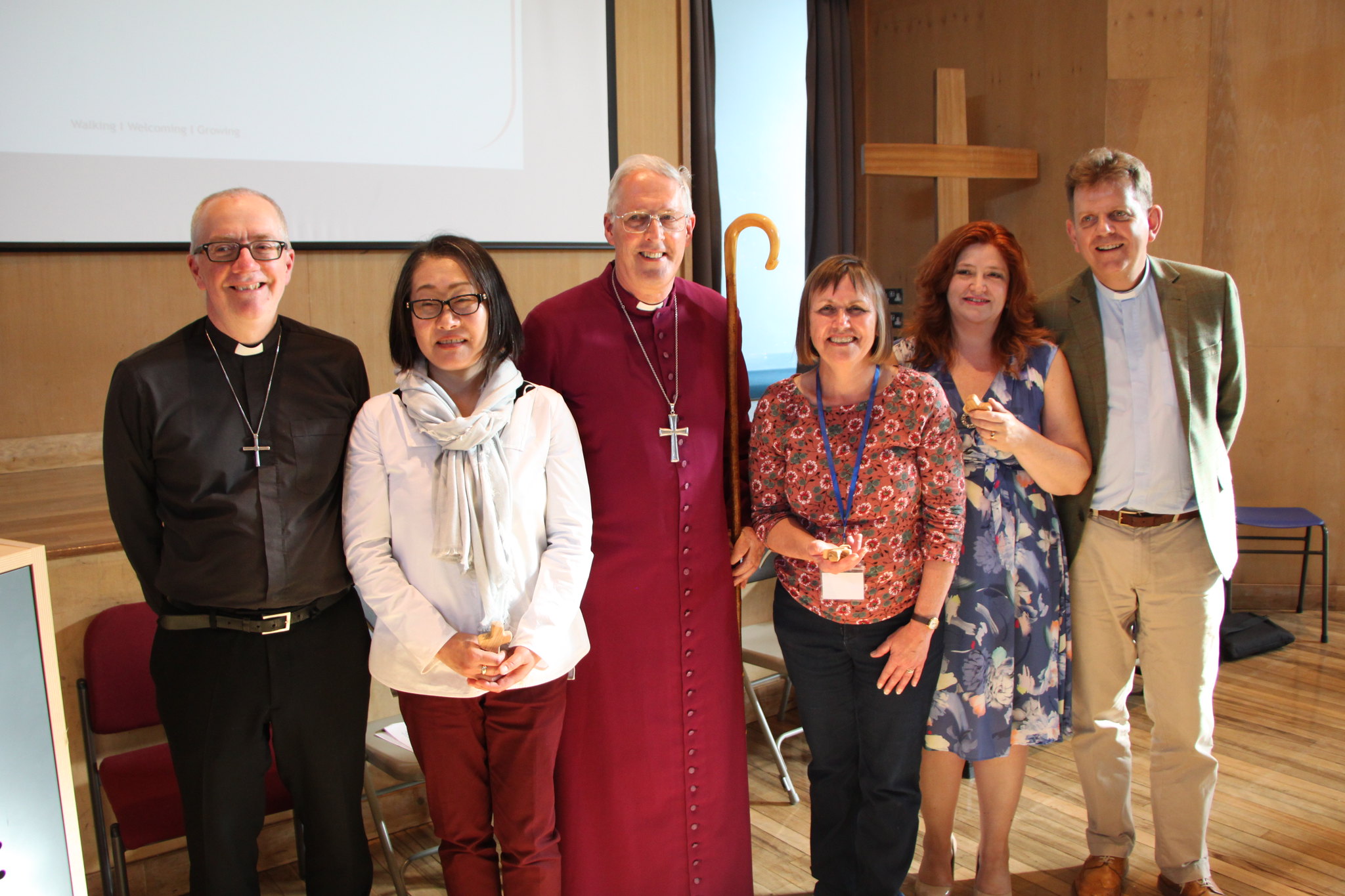Pastoral ministers are at the forefront of practical Christ-centred pastoral care , seeking to bring wholeness and wellbeing to the individuals and communities they serve. is about helping children and young people and their families to follow Jesus and to be full members of the church.
Are you someone who…
- Enjoys working with people?
- Often finds yourself in a caring role with those in need in your family, parish, or community?
- Would like to discover how your Christian faith can shape your caring?
- Wants to gain more skills for in pastoral care?
If the answer is yes, God might be calling you to ministry as a lay pastoral minister.
“Being servants in our communities, and being absolute in our powerlessness, we become a friend to the friendless and an obstacle to no-one.”
Anne Butler, one of the first Southwark Pastoral Auxiliaries
Lay pastoral ministry might include:
- coordinating a bereavement support group
- running a parent and toddler group
- helping to run a pastoral care and vising team within a parish
- volunteering at a local refugee centre
- reaching out to homeless people
- visiting as part of a hospital or prison chaplaincy team
- serving as a London Fire Service volunteer chaplain
There are three pathways for pastoral ministry:
Affirmed Pastoral Ministry
Affirmed pastoral visitors or assistants are part of the pastoral care team in a parish. They provide basic pastoral care including visiting and other forms of pastoral support, and work under the supervision of the incumbent or other staff member or a commissioned or licensed pastoral minister.
They are selected by the local parish and do introductory training on pastoral care from a Christian perspective, listening skills, and boundaries and confidentiality.
Commissioned Pastoral Ministers (Southwark Pastoral Auxiliaries, known as SPAs)
Commissioned Pastoral Ministers are part of the ministry team in a parish. They coordinate, lead, and/or train other adults involved with ministry with children, youth, and families in a church or school setting, and work under the supervision of the incumbent or other staff member.
Licensed Pastoral Ministers
Licensed Pastoral exercise leadership in a parish or the wider community, working under the supervision of the incumbent or other staff members, or a supervisor in any agency through which they may ministry. They may coordinate pastoral ministry and train other adults involved in it.
What qualities are required for pastoral ministry?
Lay Pastoral Ministers should have:
- sensitivity and concern for other people within both the church and wider community
- experience of pastoral care work, whether formal or informal
- the ability to work with others
- a readiness to share, think about and learn from experience – both your own and with other people
- a commitment to continued growth in your relationship with God and the ability to relate faith to daily living
- the capacity to take part in the training programme.
Licensed Lay Ministers (Pastoral) should in addition to the above:
- show evidence of leadership capabilities
- demonstrate a capacity to undertake more rigorous academic learning
- be 62 years or younger at the point of entering training.
What should I do if I believe that God is calling me to pastoral ministry?
First of all, speak to people you trust and who know you well, and listen to what they have to say. Make sure you speak to your parish priest or chaplain, as they will assist you in beginning to discern your sense of calling.
The Vocations team runs a number of events to help you explore your vocation. Please keep an eye on the What’s On page to find out more.
Selection and training for Affirmed Pastoral Ministry are based in your parish. For Commissioned or Licensed Pastoral Ministry, the first step in the formal discernment process is to ask your parish priest or chaplain to book you on a Vocations Forum.
Vocations Forums usually take place at Trinity House, near London Bridge, although during the Coronavirus pandemic they are being held online over Zoom.
At a Forum you will have an opportunity to talk and listen to others who also believe that God may be calling them, to reflect on what the Bible says about ministry and to think about your own journey of faith so far.
Your parish priest or chaplain can book you on a Vocations Forum by e-mailing Sue Stewart, the Vocations Department Administrator (contact details below).
What’s next?
At the end of the Forum, you will be asked if you would like to continue to explore your vocation. If you decide to go ahead, you will be assigned a Vocations Advisor who will work with you in discerning your vocation further and make a recommendation as to whether you should proceed to selection.
The selection process
You will be asked to fill in an application form, to get the support of your Incumbent/Chaplain and the PCC, and to provide the names of references who can comment on your suitability for pastoral care ministry.
You may then be invited to a selection panel, who will recommend whether they discern that it is appropriate for you to be equipped for pastoral ministry.
How will I be equipped?
The training process is slightly different depending on whether you are being equipped as a Commissioned Pastoral Minister (Southwark Pastoral Auxiliary or SPA) or a Licensed Lay Minister (Pastoral).
Training for Commissioned Lay Pastoral Ministers (Southwark Pastoral Auxiliaries/SPAs)
Year 1 training comprises the Bishop’s Certificate, a year-long, part-time course that gives you a foundation for Christian ministry (this may be taken before selection).
Year 2 training comprises the Serving the God who Cares course, a second, year-long, part-time course with the following key elements:
- reflecting on the foundations for pastoral care ministry
- developing skills in listening, assessing and responding to individual needs
- developing skills in listening, assessing and responding to local community needs
- broadening horizons through observation visits and a placement
- developing good practice in working with others
- discerning how to sustain and develop your ministry.
As part of this programme you will be asked to keep a ‘learning journal’. There will also be a range of practical assignments related to pastoral care work for you to undertake, and you will be supported throughout by one of our Learning Mentors.
The course seeks to integrate biblical, spiritual, and theological insights with the practice of pastoral care, drawing on the trainee’s experience and understanding gained from the previously completed Bishop’s Certificate.
Training for Licensed Lay Ministers (Pastoral)
Year 1 of training comprises the Serving the God who Cares course (taken alongside candidates for Commissioned Pastoral Ministry). This is a year-long, part-time course with the following key elements:
- reflecting on the foundations for pastoral care ministry
- developing skills in listening, assessing and responding to individual needs
- developing skills in listening, assessing and responding to local community needs
- broadening horizons through observation visits and a placement
- developing good practice in working with others
- discerning how to sustain and develop your ministry.
Years 2-3 of training consists of a CertHE (Level 4) course, usually taken over two years. This course includes biblical and theological studies as well as courses in foundations of pastoral care and Christian Faith and Ethics, as well as a placement and reflective practice.
After training you will complete a working agreement with your Incumbent and be commissioned or licensed by the Bishop.





